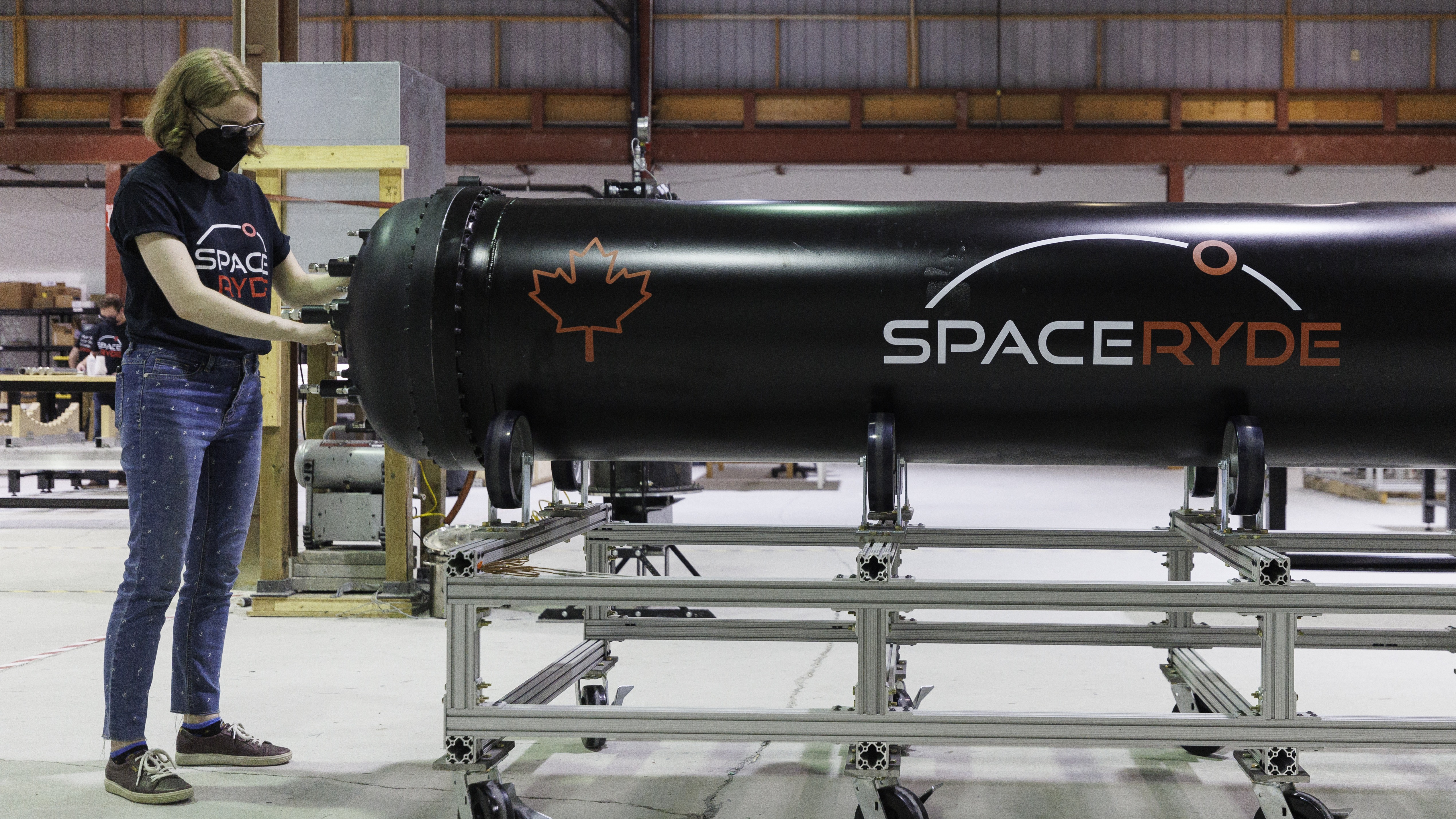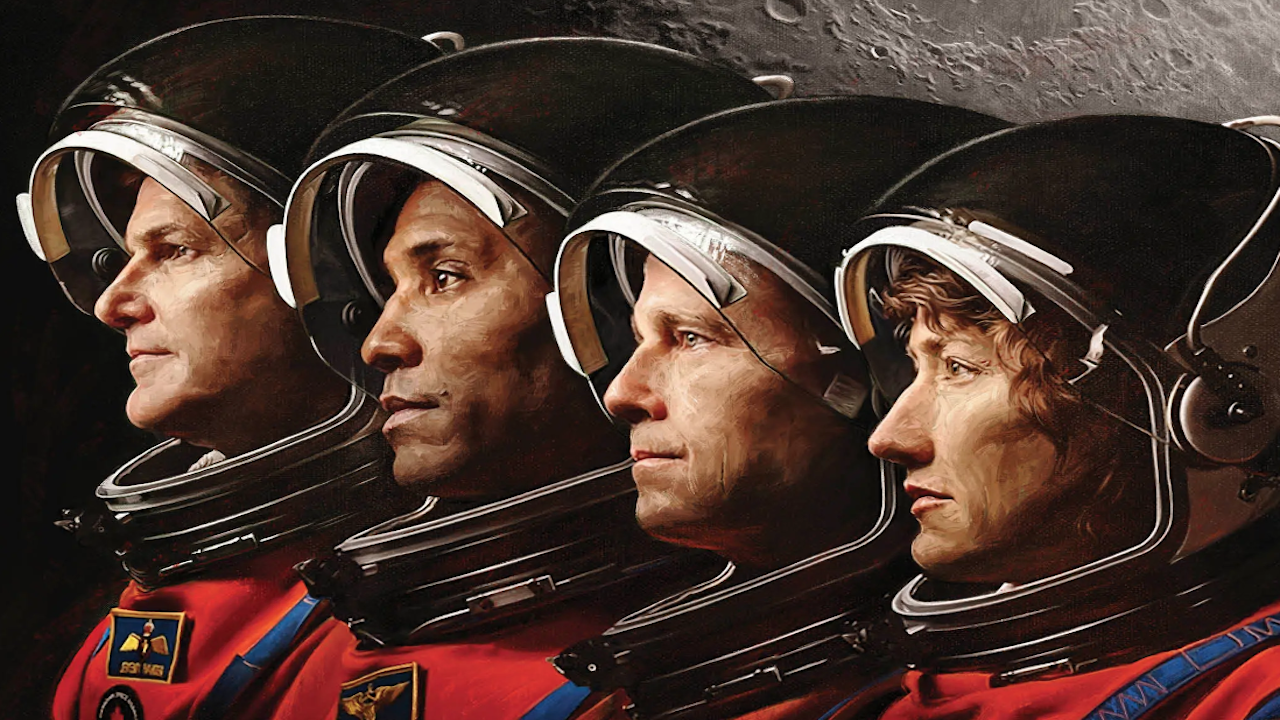Canadian town residents ask startup SpaceRyde to stop loud rocket engine tests
'The sound can be heard for many miles and startles anyone in the nearby vicinity.'

A Canadian town of 13,000 people wants a rocket startup to stop testing its engines there.
Residents of Trent Hills, an Ontario town about two hours east of Toronto, are asking the privately funded SpaceRyde rocket company to stop engine testing in the region, and the municipality has sought legal advice to help bring about that outcome, according to local reports.
"The sound can be heard for many miles and startles anyone in the nearby vicinity. Horses may bolt, and pets are distressed. Wildlife is disrupted," alleges a petition n Change.org that had been signed by more than 700 people as of Tuesday (Nov. 8).
"People's safety is at risk as the startling noise may cause anyone horseback riding, bicycling, motorcycling, working on a ladder or rooftop to momentarily lose concentration as they process the alarming sound," adds the petition.
SpaceRyde's head of marketing, Jen Scholten, declined to comment on the petition and the reports when asked by Space.com on Monday (Nov. 7). "A lot has happened since its posting," Scholten said, but did not offer further specifics.
Related: Nova Scotia spaceport project aims to launch clean-tech rockets
In early October, the municipality of Trent Hills referred the situation to legal counsel, asking "the site owner and occupier [for] a commitment to voluntarily cease rocket engine testing at the site," local newspaper Trent Hills Now wrote.
Breaking space news, the latest updates on rocket launches, skywatching events and more!
The municipality alleges SpaceRyde did not disclose its plans for the engine testing in its planning application for putting a facility on the site, which is near two main county roads. The allegations have not been proven in court, and SpaceRyde has said in reports that the rocket engine testing was covered under an accessory use of the property.
In a comment to Trent Hills Now in September, SpaceRyde co-founder Sohrab Haghighat noted that the engine-testing noise of 100 decibels is brief, infrequent and equivalent to a large truck briefly revving its engine on a road.
SpaceRyde always notifies local residents before tests occur, Haghighat said, and added that one local man told him the noise "is the sound of progress. It's the sound of Canada one day going to space (with) its own rocket."
SpaceRyde opened a 25,000-square-foot facility (2,300 square meters) in Concord in June and invited media as well as Canadian astronaut Chris Hadfield. The privately funded company has about 30 employees, according to media reports, and was founded in 2018. It is aiming to create a three-stage rocket that would fly to the stratosphere aboard a balloon, before firing its engines.
The town's dispute with SpaceRyde is taking place while Canada rapidly expands its rocket industry. Canada's government is considering a spaceport in Nova Scotia that aims to start suborbital launches next year. Several companies in the Toronto region are ramping up manufacturing for rocketry following years or decades of making parts for U.S. companies.
The small space industry in Canada is also growing as larger projects take hold in the community, such as the Canadian Space Agency's commitment to put astronauts and hardware on moon missions like NASA's Artemis 2, which aims to send people on a trip around the moon in 2024.
Elizabeth Howell is the co-author of "Why Am I Taller?" (ECW Press, 2022; with Canadian astronaut Dave Williams), a book about space medicine. Follow her on Twitter @howellspace. Follow us on Twitter @Spacedotcom or Facebook.

Elizabeth Howell (she/her), Ph.D., was a staff writer in the spaceflight channel between 2022 and 2024 specializing in Canadian space news. She was contributing writer for Space.com for 10 years from 2012 to 2024. Elizabeth's reporting includes multiple exclusives with the White House, leading world coverage about a lost-and-found space tomato on the International Space Station, witnessing five human spaceflight launches on two continents, flying parabolic, working inside a spacesuit, and participating in a simulated Mars mission. Her latest book, "Why Am I Taller?" (ECW Press, 2022) is co-written with astronaut Dave Williams.

